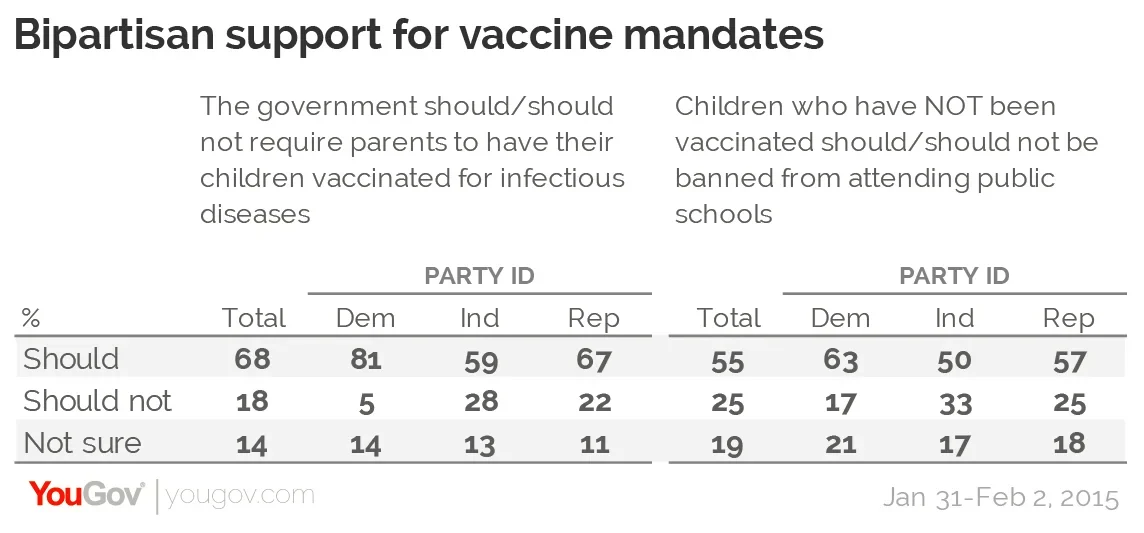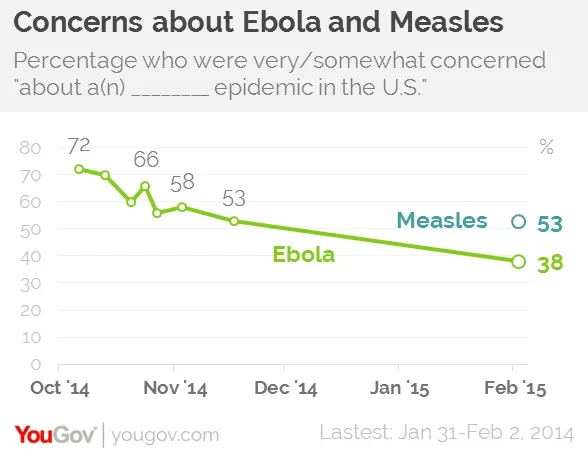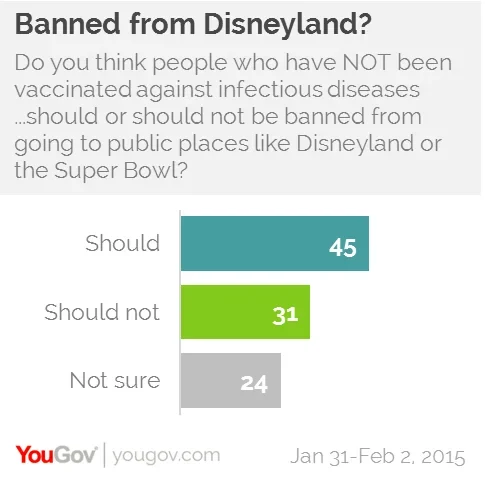Americans are now more concerned about measles than Ebola, and majorities from across the political spectrum favor requiring parents to have their children vaccinated
The Director of the Centers for Disease Control warned of the possibility of a large outbreak of measles on television Sunday, and urged vaccinations. About half the American public in the latest Economist/YouGov Poll are concerned about a possible epidemic, and even more would require vaccinations against measles, mumps and whooping cough. More than half would even keep unvaccinated children out of public schools.
Mandatory vaccination isn’t as partisan an issue as some other issues have become. Although Democrats are more likely than Republicans to support mandatory vaccination, the gap isn’t that large. And only one in five Republicans oppose mandatory vaccination. Majorities of both Republicans and Democrats would keep unvaccinated children out of public schools.

The greatest partisan opposition to mandatory vaccinations comes from political independents. Although a majority of independents support mandatory vaccination and half would keep unvaccinated children out of school, 28% oppose mandatory vaccination, and a third oppose keeping unvaccinated children out of public schools.
Women are more likely than men to support requiring childhood vaccinations, and there is an age difference. 62% of young adults would require childhood vaccinations, but that is 17 points below the 79% of those 65 and older who would. Most senior citizens likely were exposed to the measles virus as children, and in fact, as an age group, they are the least likely to report that they are worried about personally experiencing measles. More than a quarter of respondents under 30 say they are at least somewhat concerned about the possibility.
Overall, a measles epidemic worries more than half the public. That’s more than say they are worried about an Ebola outbreak.

There are reasons for Americans to be less worried about Ebola than they have been. An Ebola vaccine is now being tested in Liberia. And two unidentified patients in California tested negative for the virus just last week, so the fears about Ebola in the United States have lessened. The percentage expressing some concern that there would be an epidemic in the U.S. this week is just 38%. Last November, even as it appeared the U.S. government had the virus under control, 53% were concerned. Even more felt the western Africa outbreak could spread to the U.S. last October.

While Americans would keep unvaccinated children out of public schools, their opinion is not so clear when it comes to public events and public places. Less than half would forbid unvaccinated children to attend the Super Bowl or to go to Disneyland, even though the park has been linked to most of the cases in the current measles outbreak.
Economist/YouGov poll archives can be found here.








